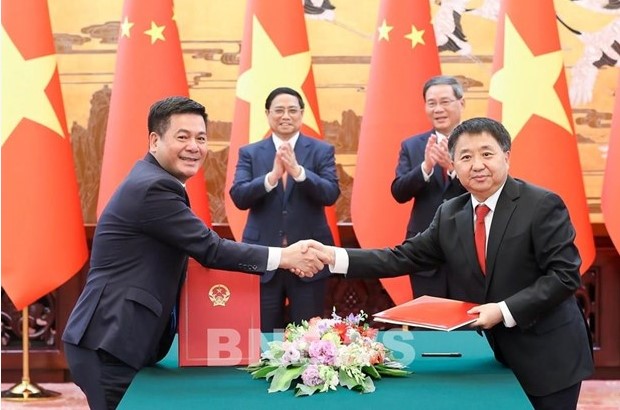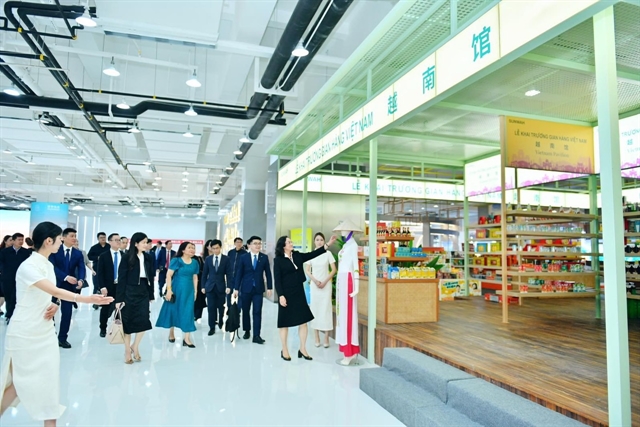 Economy
Economy

 |
| Deputy Minister of Industry and Trade Phan Thị Thắng and the delegation attended the opening ceremony of the Vietnamese pavilion in the Yunnan Free Trade Pilot Zone, China in April. — Photo tapchicongthuong.vn |
HÀ NỘI — The Ministry of Industry and Trade (MoIT) will continue to focus on and tie into solutions to develop foreign exports, in which Northeast Asia and its prime markets, is one of the focal points.
Northeast Asia is a large market with a population of about 1.6 billion people and includes including important trade partners of Việt Nam such as China, Japan and South Korea.
The partners in the the Northeast Asia region have signed and participated in bilateral and multilateral free trade agreements with Việt Nam such as the Việt Nam - Korea Free Trade Agreement (VKFTA), the Việt Nam - Japan Economic Partnership Agreement (VJEPA), the Regional Comprehensive Economic Partnership Agreement (RCEP).
So these agreements were a key support for the development of trade and investment exchanges with countries in the Northeast Asia region, while also helping Việt Nam participate in the regional and global supply chain, said the MoIT’s Asian - African Market Department.
Exports to China reached $61.2 billion, up 6.4 per cent at the end of last year, a bright spot while other export markets were declining.
Exports to the remaining markets in the Northeast Asia region decreased slightly, of which exports to Japan and South Korea declined by 4 per cent and to Taiwan (China) fell by 7 per cent.
From the start of 2024 and facing concerns about the world economic outlook, the MoIT determined that it was necessary to push further and explore deeper in order to promote exports to the region and also remove any barriers for the business community in order to increase bilateral trade turnover with all partners in the world.
Those in the Northeast Asia region have seen a more visible export push in the first months of the year.
Firstly, foreign affairs activities have been strongly implemented to promote bilateral co-operation in trade, industry, and energy through visits of senior leaders to China, Japan, and South Korea.
Secondly, the ministry promoted and co-ordinated with partners in other countries to implement the co-operation contents agreed upon at joint meetings and the agreements and action plans.
The ministry is also providing market information guides on how to access the markets of Northeast Asian countries and organised conferences to promote those free trade agreements and helping the business community to grasp and exploit advantages offered by the FTAs.
Vietnamese businesses received help to connect to domestic and foreign trade organisations to boost exports.
Lastly the ministry will co-ordinate and support localities in organising trade promotion activities, removing difficulties at border gates, focusing on key and seasonal agricultural products such as lychee, rice, durian, dragon fruit to the markets of China, Japan and South Korea.
The total trade turnover between Việt Nam and countries in the Northeast Asia region reached over $112 billion in the first four months of this year, an increase of 16 per cent over the same period last year.
Of which, exports to China increased by 14.3 per cent, to South Korea up 8.8 per cent, Japan up 3.2 per cent, Taiwan (China) up 20 per cent; Hong Kong (China) up 59 per cent.
The Công Thương (Industry and Trade) Magazine quoted the Asian - African Market Department as saying that they want to keep up this momentum of recovery and at the same time promote further growth for Việt Nam's economy and trade over the remainder of 2024.
The MoIT will continue to focus on and simultaneously find solutions to develop Việt Nam's foreign trade, in which the Northeast Asia region has been identified as key. — VNS